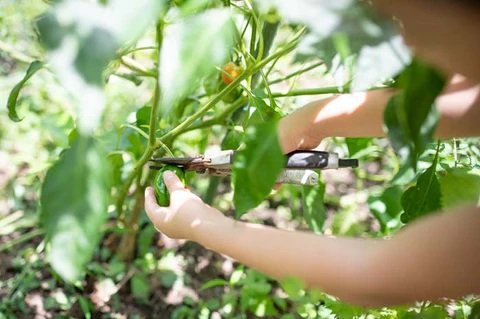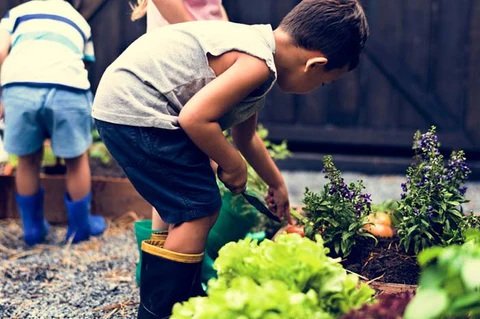ECO CLUB
 An eco club in a school is a group of students who work together on environmental activities and projects. These clubs help students learn about environmental issues and how to take action to help the environment.
An eco club in a school is a group of students who work together on environmental activities and projects. These clubs help students learn about environmental issues and how to take action to help the environment. Eco club in schools to empower students to participate and take up meaningful environment activities and project.
ECO CLUB ACTIVITIES IN SCHOOL
Campaigning against banned items like carry bags and loud speakersPlanting trees
Recycling waste
Making products from waste
Preparing eco-friendly colors
Making paper bags
Participating in nature trails
KITCHEN GARDEN

KITCHEN GARDEN IN SCHOOL
A perfect safe space for cultivating an inquisitive mind and molding ethical social behavior. Want your kids to crave learning? Gardening sets the foundation for developing intellectual interests, further nurtured in subjects like chemistry, biology, botany, mathematics, and social sciences. It offers a birthing soil for a healthy value system promoting moral growth and community spirit.
Gardening is one of the best child-rearing practices for shaping positive behavior and development, at the right age.

Benefits of a school kitchen garden:
Develops motor skills and cognition.Encourages healthy and clean eating.
Fosters team spirit and companionship.
Shapes a positive, hard-working attitude.
Builds rationality and scientific temperament.
Inspires self-esteem and dignity of labor.
Improves concentration and focus.
Instills patients and perseverance.

How to set up a school kitchen garden?
Gardening Committee: Establishing a small team with school staff, administrators and volunteers can help in coordination.
Identify gardening timeline: Access our free vegetable growing season chart for India to plan your vegetable garden.
Pick the right spot: Areas along the school’s boundary or playground can be demarcated for a uniform space.
Check soil quality: Does your spot have a healthy blend of soil? Ensure best soil for growing vegetables.

Getting children interested in gardening
Give the young ones a free space of their own within the spot you have picked for your school kitchen garden.
Divide them into teams to grow and take care of specific plant varieties and build ownership.
Allocate personal responsibilities for inclusive participation and responsible engagement
Encourage journaling or sketching the plants at different stages of growth to hone creativity and diligence.
Pran Vayu Devata Yojana

Under the Haryana government's "Pran Vayu Devta Pension Scheme", a pension of Rs 2,500 per annum is given to those who take care of trees older than 75 years with the aim of preserving old trees.
The selected Prana Vayu Devta trees include about 40 species, of which Peepal, Banyan, Neem, Mango, Jaal, Gular, Krishna Kadamba, Pilkhan etc. are prominent. All these trees are Indian and have immense ecological importance.
We have about 25 trees registered under this Scheme


